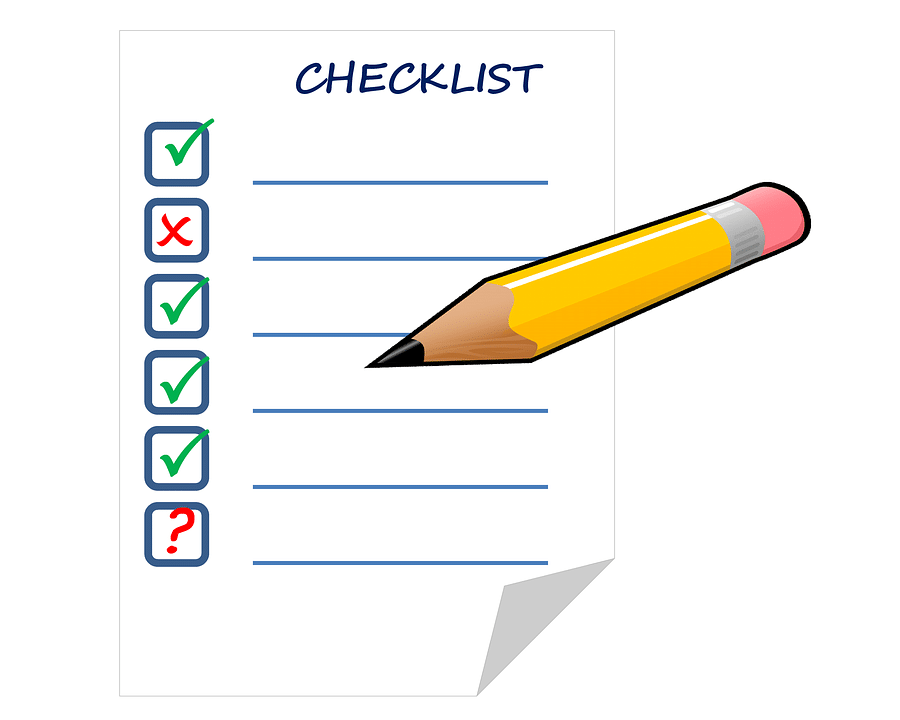Jasmine Birtles
Your money-making expert. Financial journalist, TV and radio personality.


If you have a family, or anyone else who depends on you, life insurance is crucial. Life insurance promises (in an insurance kind of a way – i.e. with conditions) that if you die, a sizeable chunk of change will be given to your family. This will give you the peace of mind of knowing that your loved ones will be covered financially if you go.
As a possible drawback (or a plus if you’re into Agatha Christie novels), you may find that in purely financial terms, you’re worth a lot more to your family dead than you are alive.
It’s essential to take out life insurance if you have children or other dependents who wouldn’t be able to cope if you weren’t around.
Think about what needs to be paid for day by day, year on year: your mortgage, kids’ university fees, the family maintenance and  upkeep and so on. Or perhaps you have elderly or disabled family members who depend on you for their care and medical treatment?
upkeep and so on. Or perhaps you have elderly or disabled family members who depend on you for their care and medical treatment?
These are the kind of expenses that would need to be covered by a life insurance policy if you were suddenly not around.
If you’re single, childless and you don’t have anyone depending on you or your income, don’t bother with life insurance. Your banker or financial salesperson might try to frighten you into taking it out, but you really don’t need it. Don’t waste your money. You’d be better off considering income protection insurance.
1. Get in quick!
The younger and healthier you are, the cheaper your premiums will be, so take out a policy sooner rather than later.
2. Shop around
Always shop around to get the best price. You’ll probably be offered life insurance from your mortgage lender but this is rarely a good buy. You must shop around. It’s important to remember that different types of people will get different rates from different insurers – so a smoker may find that one insurer offers them cheaper premiums than most others and some policies are tailored to specific age groups.
3. Pick the right policy
There are several life insurance options. Some stay at the same level for the length of the term, others can reduce over time in line with your mortgage being paid off.
4. Be honest
Ensure you’re completely honest about any medical or lifestyle issues (for instance, don’t be tempted to lie about a smoking habit). If something isn’t declared it could leave your whole insurance policy null and void. If you’re in any doubt about whether something’s relevant or not then declare it. It’s better to be safe than sorry.
5. Use a trust
Using a trust won’t cost you a penny and will ensure that it won’t be considered part of your estate upon death – and therefore isn’t liable for inheritance tax. The money gets passed directly to your family without being bothered by the taxman so they get more cash and they get it quicker, too – about six months quicker on average.
When you take out a policy there will usually be an option to write it into a trust at no extra cost so there shouldn’t be any hassle. Ideally opt for a ‘Flexible Trust’ (the insurance company should be able to sort this out for you).
6. Review your policy
Review it every five years or so. Your circumstances could have changed to the point where you don’t need it anymore or you need greater cover. (If you find a better deal elsewhere and decide to switch, make sure you wait until your new cover is in place before cancelling your old policy.)
There are all sorts of life insurance policies to choose from and get confused by.
Essentially, the premium you pay will be down to the length of your policy and the amount you’ve agreed will be paid out following your death. However, it also depends on the level of flexibility and ‘extras’ that you have in the policy.
There are six basic types of life insurance and we’re calling them all insurance even though most used to be called ‘assurance’ (technically assurance refers to a policy that will definitely pay out – e.g. after a fixed term – whereas insurance will only be paid out if the worst happens).
At least one of these kinds of insurance (or assurance) should be right for your circumstances:
Level term insurance
This is generally the cheapest and simplest option. It’s sometimes called ‘protection only’ insurance and guarantees to pay out a set amount if you die within a certain time. You pay an agreed amount each month, which is handy.
However, it doesn’t pay out anything if you continue living after the term agreed. If you do, you’ll have to negotiate another deal at that point. Be warned that it could be a lot more expensive at that stage – you’ll be older and could also be in poorer health.
Increasing term insurance
With this one, the cover increases over the years without a need for a medical. However, the amount you pay also rises.
Decreasing term insurance
The cover decreases over the years at a flat, fixed rate. You pay less as well.
Mortgage protection insurance
Pretty obviously, this is insurance that’s connected to your mortgage. It reduces over time as the amount you still owe on the mortgage goes down.
Renewable term insurance
This is a short-term policy that can be renewed at the end of the term without a medical. It’s cheaper than most others because it lasts for a shorter time.
Family income benefit
Family income benefit is one of the cheapest means of protection. Instead of a one-off lump sum this pays a monthly or annual income which lasts for the remainder of the policy term. So, if you have a plan term of 20 years and your family make a claim after 15 years, they will receive benefits for the remaining five years.
The amount you insure yourself for depends on how much you think the family would need without you. Ask yourself:
So for example, if you have both a family and a mortgage, you may want to consider taking out a level-term policy to provide for your family, and a separate decreasing-term policy to cover your mortgage.

To work out how much cover you need, you can do a ‘back of an envelope’ calculation yourself (or create your own spreadsheet if you can do that kind of thing). Follow these steps to get a rough estimate:
Don’t panic if you come up with a figure that seems impossibly large. Be realistic and aim for the amount of cover you can afford. Some cover is infinitely better than none!
You will want to cover yourself at least until you retire. However, you may need coverage beyond this if you have young children who will not become financially independent for some time. Or perhaps you have dependents who will require special care throughout their lives. But there’s little point in insuring yourself well into old age when most people’s children and dependents have long since become fully independent.
Even if you’re the sole breadwinner, the costs of home or childcare that would need to be met in the event of their death are often considerable and need to be taken into account. It doesn’t make sense to leave only one of you protected.
 To this end, it’s worth considering having separate ‘his’ and ‘hers’ life insurance policies. Although many couples automatically go for a ‘joint life first death’ policy, there are several reasons for considering separate policies:
To this end, it’s worth considering having separate ‘his’ and ‘hers’ life insurance policies. Although many couples automatically go for a ‘joint life first death’ policy, there are several reasons for considering separate policies:
The type of policy you go for and the price you pay can also be affected by your lifestyle and health. The main factors insurers take into account are:
Your age
Unsurprisingly, life insurance premiums increase as you get older. For instance, someone in their early thirties will normally only pay about half of what someone in their early forties will pay. So if you buy early and get a guaranteed fixed premium rate, it’s possible to save money through lower monthly premiums.
Your health
If you’ve had a serious illness or you currently have health problems, put this on the form.
Your smoking and alcohol consumption will influence the type of life insurance you can get, and how much you will have to pay for it. (Smoking can as much as double the cost of your life insurance. However, to qualify as a non-smoker in life insurance terms, you need to have been smoke-free for at least 12 months).
Your family history is also taken into account when they work out your likely survival rate.
You’ll also be asked for your weight and height. Insurers use this to calculate your Body Mass Index (BMI) – one of the measures used to calculate how much you’ll have to pay for life cover.
It may be possible to get cover if you suffer from a very serious condition, such as cancer. A wealth of caveats will apply (it will depend on the specifics of your condition, how long you require insurance for, and so on).
You need to be honest about it all – every year there are cases of life insurance companies refusing to pay out because the deceased was not open about their health, alcohol consumption or chronic weight problems.
Your job and your hobbies
If you’re a bomb disposal expert, a policeman or even an MP, your life insurance premiums will be higher than, say, someone who works in an office.
You would be surprised at what is deemed a high-risk occupation, so it could be that what seems to you like a mild office job is considered hazardous by a life insurance company. This can put your premiums up.
If you fly light aircraft, go in for bungee-jumping or enjoy off-piste skiing on a regular basis, you will pay for it in your life insurance policy. Potentially dangerous sports like these along with diving, parachuting and others will need to be mentioned in your application.
You’ll probably be asked more detailed questions about where and how often you do them, to what proficiency and so on – so be prepared for that.
Different insurers categorise extreme sports and hobbies in different ways – so do check your particular activity is covered in your policy.
On the other side of the coin, you might be surprised what some insurers count as an ‘extreme’ or ‘dangerous’ sport (horse riders can pay a higher premium with some companies, for example). As mentioned, it always makes sense to shop around. You don’t want to be paying the same premiums as a bungee-jumping, white-water rafting adrenaline junkie if your ‘extreme’ sporting activity only consists of riding your pony along the local bridle path once a week.
Self-insurance
If you have a good deal of spare cash right now, then a better option than a life insurance policy is to build up your own personal investment pot that would cover your family if you were taken from them suddenly.
As with any type of self-insurance, this is generally better than paying a life company as the money is yours whatever happens – you and your family get the benefit of its growth, and you don’t have to lose money each year in premiums.
Again, though, if this is money you want to earmark for your family, it’s a good idea to put it into a trust, probably invested in a solid and safe bond fund or something similar.
See our investment article for more on getting to grips with products and jargon.
However, if you haven’t managed to amass this kind of money, it’s a good idea to get a life insurance policy until you do.
Critical illness insurance
Some people opt for critical illness insurance rather than full life insurance because they feel that it’s more appropriate for their needs.
Many life insurance policies offer the option of built-in critical illness cover, allowing you to combine the two.
Make sure you compare life insurance with critical illness.

I agree if you have children it’s worth looking into life insurance.